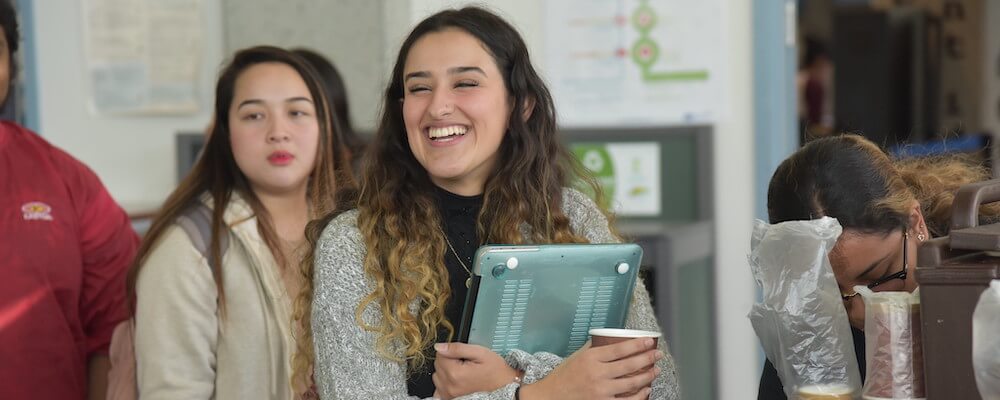
Change the Student Experience
Call to Action: Assess and make changes from an equity and social justice perspective in both the instructional and student service experience.
- Assess the classroom experience and create action plans to create inclusive classrooms and embed anti-racism curriculum across disciplines.
- Initiate a Cultural Competency Curriculum Audit.
- Provide workshops and trainings on student centered syllabi.
- Provide training and mentoring on effective teaching strategies for a culturally diverse student population.
- Assess student experiences with services and offices and create actions plans to create equity and anti-racist experiences.
- Review and update of first responder and direct service training and curriculum.
Call to Action
Progress Report
Assess and Change the Student Experience
| 2021-2022 Actions | Responsible Parties |
|---|---|
| 1. Launch NameCoach at Mission College. |
|
| 2. Continue efforts to improve the onboarding experience (i.e. CCC Apply application; improving Steps to Apply language, etc.) |
|
| 3. Provide trainings and workshops around equity focuses, culturally responsive and anti-racist curriculum, syllabi, and instructional practices. |
|
| 4. Conduct audits of curriculum for cultural responsiveness, inclusivity, and teaching about historical and systemic racism. |
|
| 6. Review and update curriculum and course for first responder occupations . |
|
| 7. Re-launch the Student Leadership and Engagement Institute. |
|
| 8. Incorporate student feedback from student surveys, point of service surveys, and other methods to make changes to practices and communications (such as Steps to Success, Cranium Café, and student notices related to enrollment and financial aid.) |
|
| 9.. In partnership with ASG, establish a student events workgroup to provide resources, support, and coordination in the planning of events that celebrate the history and culture of our diverse student body. |
|
| 10. Improve and streamline process for students to submit preferred name on Canvas/Class Roster. |
|
2020-21 Actions
| 2020-21 Actions | Status |
|---|---|
| 1. Provide trainings and workshops around equity focuses, culturally responsive and anti-racist curriculum, syllabi, and instructional practices. |
|
| 2. Develop an equity-focused guide to curriculum and syllabi development. |
|
| 3. Conduct audits of curriculum for cultural responsiveness, inclusivity, and teaching about historical and systemic racism. |
|
| 4. Provide implicit bias testing and related training across the college in partnership with the district. |
|
| 5. Establish a work team to apply for and plan for the implementation of a student UMOJA program. |
|
| 6. Establish a work team to plan for the re-introduction of the Student Leadership and Engagement Institute. |
|
| 7. Incorporate student feedback from student surveys, point of service surveys, and other methods to make changes to practices and communications (such as Steps to Success, Cranium Café, and student notices related to enrollment and financial aid.) |
|
| 8. In partnership with ASG, establish a student events workgroup to provide resources, support, and coordination in the planning of events that celebrate the history and culture of our diverse student body. |
|
| Additional Activities to Support This Priority |
|

